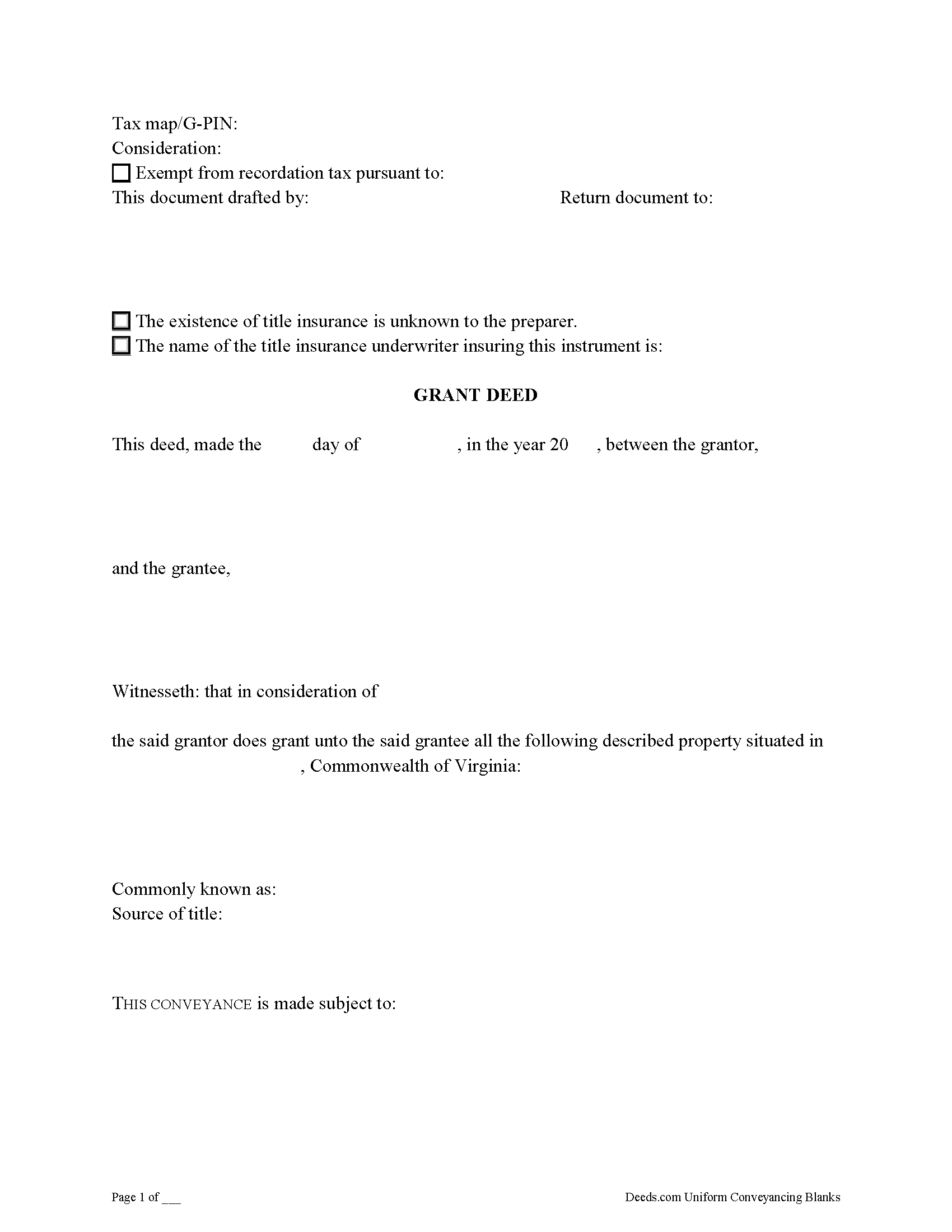Download Virginia Grant Deed Legal Forms

Virginia Grant Deed Overview

In Virginia, title to real property can be transferred from one party to another by executing a grant deed. Use a grant deed to transfer a fee simple interest with minimal covenants of title. The word "grant" typically signifies a grant deed, but it is not a statutory form in Virginia.
Grant deeds offer buyers (grantees) more protection than quitclaim deeds, but less than warranty deeds. Grant deeds guarantee through explicit covenants that the title is free of any encumbrances, and that the grantor is seized of a fee simple interest in the property. Grant deeds do not require the grantor to defend the title against claims, as in a warranty deed.
In addition to meeting all state and local standards for recorded documents, a lawful grant deed includes the grantor's full name, mailing address, and marital status; the consideration given for the transfer; and the grantee's full name, mailing address, marital status, and vesting. Virginia requires each party's name to be underlined or capitalized in the conveyancing instrument for indexing purposes (Va. Code Ann. 17.1-223). Vesting describes how the grantee holds title to the property. Generally, real property is owned in either sole ownership or in co-ownership. For Virginia residential property, the primary methods for holding title are tenancy in common, joint tenancy, and tenancy by entirety. A conveyance of real estate to two or more persons creates a tenancy in common, unless another intention is clearly expressed. A tenancy by entirety is optional for married couples only, and must be explicitly stated (55.1-135, 55.1-136).
As with any conveyance of realty, a grant deed requires a complete legal description of the parcel. Recite the prior deed reference to maintain a clear chain of title, and detail any restrictions associated with the property. The finished copy of the deed must be signed by the grantor (and his or her spouse, if applicable) and notarized. Record the original completed deed, along with any additional materials, at the circuit court clerk's office of the independent city or county where the property is located. Contact the same office to verify recording fees and accepted forms of payment.
In Virginia, a state recordation tax is levied at the rate of 25 cents on every $100.00 of the consideration or the actual value of the property conveyed, whichever is greater (58.1-801). If the deed is exempt from the recordation tax, the exemption must be listed on the face of the instrument. A list of exemptions can be found at 58.1-811.
A Land Recorder's cover sheet is required to accompany deeds in certain Virginia counties. The form may be generated online to produce a scanning barcode. Contact the appropriate circuit court clerk for information regarding use of cover sheets.
This article is provided for informational purposes only and is not a substitute for the advice of an attorney. Contact a Virginia lawyer with any questions related to the transfer of real property.
(Virginia Grant Deed Package includes form, guidelines, and completed example)